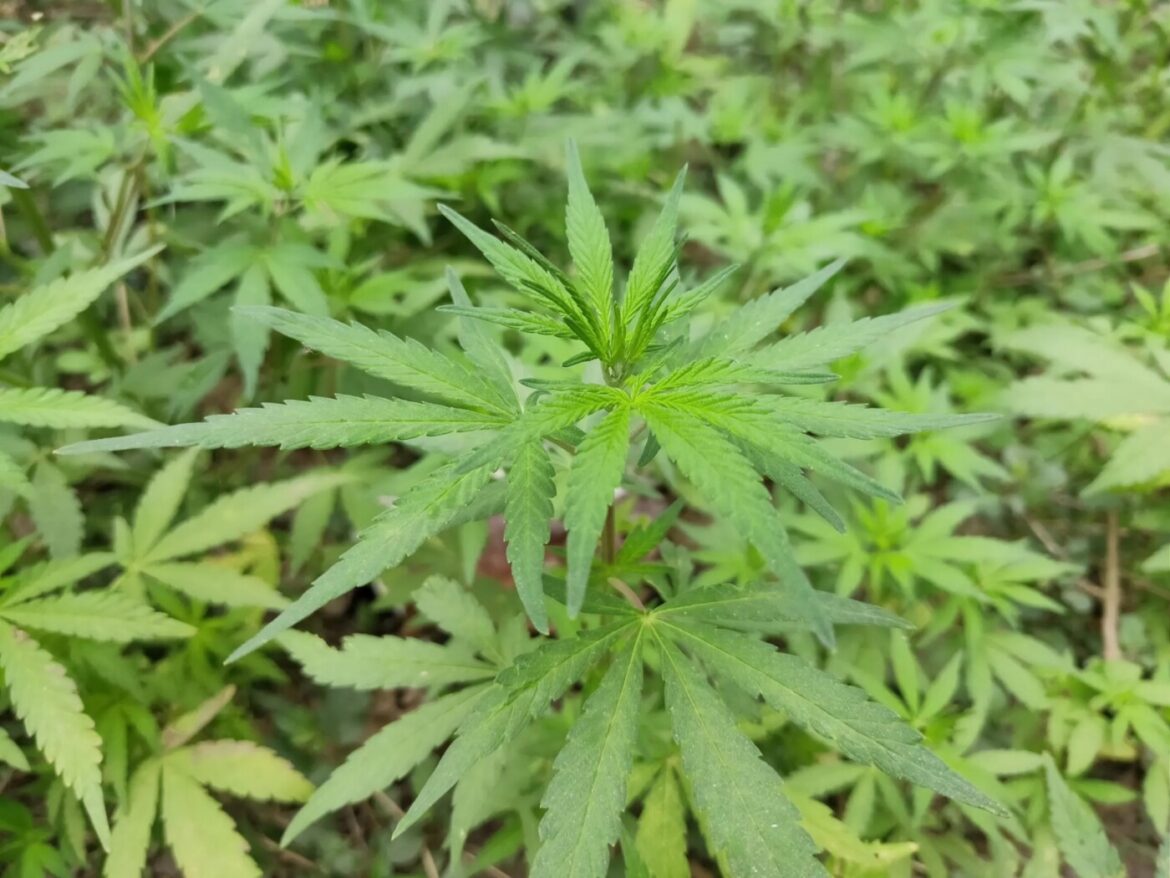California Gov. Gavin Newsom has announced this week that the state’s Unified Cannabis Enforcement Taskforce recently seized more than $19 million worth of illicit cannabis and cannabis products during operations in Oakland and Hayward.
The California Department of Fish and Wildlife, leading the East Oakland enforcement action, reported the seizure of:
- Over 7,000 illegal cannabis plants valued at $6.1 million
- Over 1,200 pounds of processed cannabis worth $2 million
- 581 pounds of concentrated cannabis valued at $4.4 million
- 6,250 disposable vape cartridges worth more than $41,000
According to the governor’s statement, the operation in Oakland uncovered a functioning carbon dioxide and butane honey oil laboratory, which posed a significant public safety risk due to its highly flammable nature. The hazardous lab was dismantled by Oakland hazardous materials crews and the state’s Department of Toxic Substances Control.
Simultaneously, another multi-agency operation in Hayward, spearheaded by the California Department of Cannabis Control, resulted in the seizure of 4,018 pounds of illegal cannabis plants and processed flower valued at $6.6 million. For safety reasons, local code enforcement red-tagged the facility and disconnected its electricity, according to the governor’s office.
David Hafner with the California Department of Cannabis Control said both seizures happened Nov. 20. Both sites are currently under investigation, and no arrests were made.
“What we tend to find when we go to these illegal operations are people who are low level workers. These are not the kingpins, not the masterminds,” said Hafner. “The other factor is that normally we do these operations very early in the morning and a lot of times people aren’t there.”
Hafner said the reason the seizure was done by the state Department of Fish and Wildlife is because a lot of illegal cannabis is grown on public lands. In the Bay Area, illegal cultivation tends to happen indoors, occupying warehouses and homes, he said, while operations elsewhere in Northern California are often outdoors.
The Department of Cannabis Control was established in 2015 under Proposition 64 and is charged with regulating medical cannabis. Has illegal production of cannabis changed since statewide legalization?
“Who knows truly what the size of the illegal market is,” said Hafner. “These guys don’t pay taxes. They don’t report to anyone. They don’t have business licenses.”
The cannabis enforcement task force was established in 2022 by Newsom to enhance coordination among state, local, and federal agencies in combating illegal cannabis operations. According to the governor’s statement, since its formation, the task force has conducted over 350 operations, seizing 162 tons of illegal cannabis worth an estimated $536 million, eradicating 526,037 plants, confiscating 167 firearms, and arresting 59 individuals.
The value of the seized products is calculated using the wholesale price.

“Most analysts think the eradication efforts from these programs are a drop in the bucket versus the illicit market,” said Dale Gieringer, a director with the nonprofit National Organization for the Reform of Marijuana Laws, or NORML. “The legal cannabis market in California saw $350 million in sales in November, or about $4 billion per year,” he said. “Much of the illegal crop is for export out of state. Historically, the out-of-state market has been larger than the in-state market for California. Out-of-state export will only cease to be a problem if and when marijuana becomes legal nationwide and interstate commerce is legalized.”
“The answer is to lessen taxation and regulation on the legal cannabis market in California, something we work for,” Gieringer said, adding that the state charges a 15% excise tax on cannabis at the point of retail sale, plus regular state sales and use taxes, which varies from 7.25% to 11.75% depending on the jurisdiction.
He said his group also lobbies to derail bills in the Legislature aimed at small farmers or businesses who often can’t afford licensing.
Hafner said that a lot of the complications come from the fact that the cannabis market is still in its infancy.
“A lot of these people who were illegal are now trying to make it legally, and they are dealing with challenges of running a legal business versus just growing some weed. It’s a completely different situation,” Hafner said.
In addition to the state task force, the California attorney general has a program called the Eradication and Prevention of Illicit Cannabis, aimed at human trafficking and environmental crimes at illicit cannabis grows.
The post California task force seizes over $19 million in illegal cannabis products across East Bay appeared first on Local News Matters.
